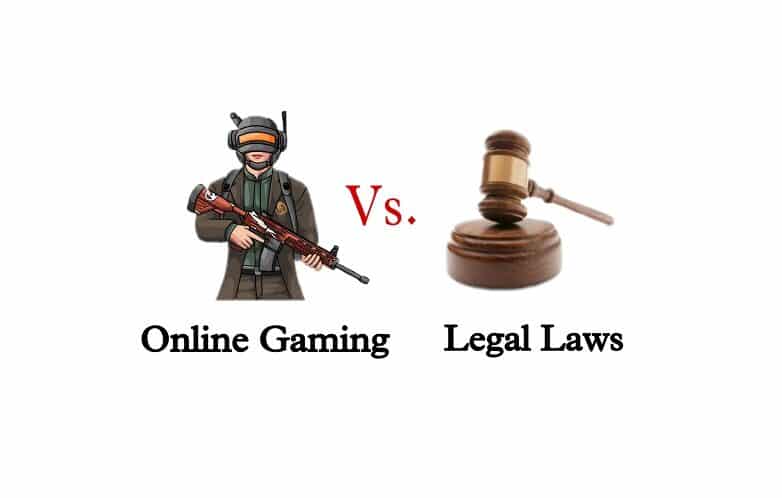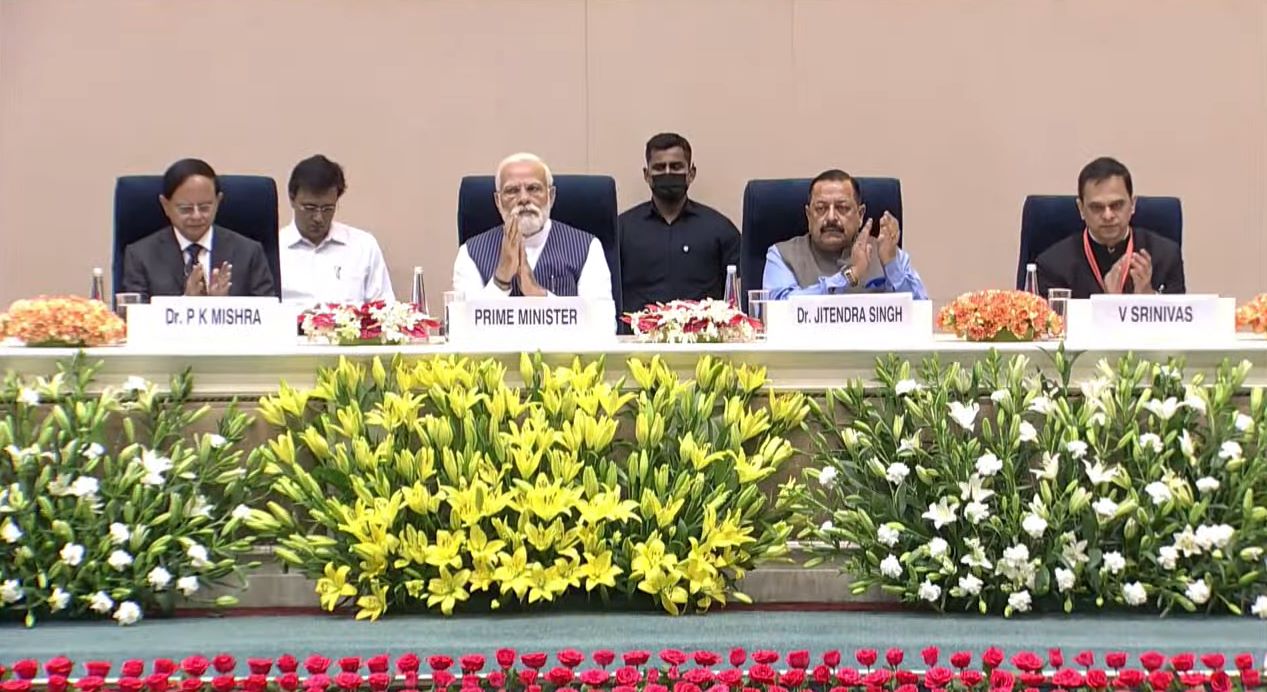Online games are a fast-growing and profitable industry in India, with a huge and diverse user base, especially among the young and urban population. A report by KPMG estimates that the online gaming market in India was valued at USD 1.2 billion in 2020, and is projected to grow at a CAGR of 27% to reach USD 4.4 billion by 2025. The number of online gamers in India is also expected to rise from 360 million in 2020 to 510 million by 2022. However, the legal environment for online games in India is complex and fragmented, with different laws and regulations applicable at the central and state levels, and varying interpretations and enforcement by the courts and authorities. This article aims to provide an overview of the legal landscape for online games in India, and highlight some of the key challenges and issues faced by the industry and its stakeholders.
What are Online Games?
Online games are a broad term that covers various types of games that can be played on digital platforms such as computers, mobile phones, tablets, consoles, etc. Online games can be classified into different categories based on various factors such as the nature of the game, the mode of access, the involvement of stakes or prizes, etc. Some of the common categories of online games are:
- Casual Games: These are simple and easy-to-play games that do not require any special skills or strategies, and are usually played for fun and entertainment. Examples of casual games are Candy Crush, Ludo King, Subway Surfers, etc.
- Skill-Based Games: These are games that require a certain degree of skill, knowledge, or expertise to play and win. Examples of skill-based games are chess, quiz, crossword, rummy, poker, etc.
- Chance-Based Games: These are games that depend largely or wholly on luck or randomness to determine the outcome. Examples of chance-based games are lottery, bingo, roulette, slots, etc.
- Fantasy Sports Games: These are games that involve creating virtual teams of real players from various sports such as cricket, football, basketball, etc., and competing with other teams based on the actual performance of the players in real matches. Examples of fantasy sports games are Dream11, MyTeam11, MPL, etc.
- E-Sports Games: These are games that involve competitive and organized video gaming among professional or amateur players or teams. Examples of e-sports games are PUBG Mobile, Call of Duty Mobile, Free Fire, etc.
Legality of online games in India
In India it depends largely on whether they are considered as games of skill or games of chance. According to the Supreme Court of India, games of skill are those where “success depends principally upon the superior knowledge, training, attention, experience and adroitness of the player“. Games of skill are generally exempted from the scope of gambling laws in India, as they are not considered as a form of wagering or betting.
However, games of chance are those where “the element of chance predominates over the element of skill“. Games of chance are generally prohibited or restricted under various gambling laws in India, as they are considered as a form of speculation or gambling.
What are the Laws for Online Games in India?
The legal framework for online games in India consists of various laws and regulations at the central and state levels. Some of the key laws that govern online games in India are:
The Constitution of India
The Constitution of India empowers both the central and state governments to legislate on matters relating to gambling and betting. The subject of gambling and betting falls under Entry 34 of List II (State List) of the Seventh Schedule of the Constitution, which means that the states have the exclusive power to make laws on this subject. However, the subject of lotteries falls under Entry 40 of List I (Union List) of the Seventh Schedule, which means that the central government has the exclusive power to make laws on this subject.
The Public Gambling Act, 1867
This is an old law enacted by the British colonial government that prohibits running or being in charge of a public gaming house or being present there for gaming purposes. The Act also defines a “gaming house” as any place where instruments for gaming are kept or used for profit or gain. The Act does not apply to games of skill or lotteries authorized by law. The Act also does not expressly cover online gaming activities as it was enacted before the advent of internet technology.
The Information Technology Act 2000
This is a comprehensive law that deals with various aspects of information technology such as cyber crimes, electronic commerce, data protection, etc. The Act also empowers the central government to block access to any information or website that it deems to be in contravention of the law or public order. The Act also provides for intermediary liability for online service providers such as internet service providers, web hosts, online platforms, etc., who may be held liable for any unlawful content or activity on their networks or websites, unless they exercise due diligence and comply with the prescribed guidelines.
The Payment and Settlement Systems Act 2007
This is a law that regulates and supervises the payment and settlement systems in India, such as banks, card networks, wallets, etc. The Act also empowers the Reserve Bank of India (RBI) to issue directions and guidelines to the payment system operators and participants regarding the conduct of their business and the prevention of money laundering and terrorist financing. The Act also provides for the protection of consumer rights and interests in relation to the payment and settlement systems.
The Foreign Exchange Management Act 1999
This is a law that regulates and manages the foreign exchange transactions in India, such as imports, exports, remittances, investments, etc. The Act also empowers the RBI to issue rules and regulations regarding the current account and capital account transactions involving foreign exchange. The Act also provides for the penalties and enforcement measures for any violation of the provisions of the Act or the rules and regulations made thereunder.
The Central Goods and Services Tax Act 2017
This is a law that levies and collects a uniform tax on the supply of goods and services in India, except for certain specified goods and services that are exempted or subject to a lower rate of tax. The Act also defines “supply” as including all forms of supply of goods or services or both such as sale, transfer, barter, exchange, license, rental, lease or disposal made or agreed to be made for a consideration by a person in the course or furtherance of business. The Act also provides for the registration, valuation, invoice, payment, return, refund, audit, assessment, appeal and other procedures related to the tax.
Some States specific laws on online gaming
- Sikkim – Sikkim is one of the few states that have legalized and regulated online gaming activities in India. The Sikkim Online Gaming (Regulation) Act, 2008 and the Sikkim Online Gaming (Regulation) Rules, 2009 provide for the licensing and regulation of online games such as roulette, blackjack, poker, rummy, bingo, etc., within the territory of Sikkim. The licensees are required to comply with various conditions such as paying license fees, maintaining records, ensuring fair play, preventing underage gaming, etc.
- Nagaland – Nagaland is another state that has legalized and regulated online gaming activities in India. The Nagaland Prohibition of Gambling and Promotion and Regulation of Online Games of Skill Act, 2016 and the Nagaland Prohibition of Gambling and Promotion and Regulation of Online Games of Skill Rules, 2016 provide for the licensing and regulation of skill such as chess, bridge, poker, rummy, quiz, fantasy sports games etc., within and outside the territory of Nagaland. The licensees are required to comply with various conditions such as paying license fees, maintaining records, ensuring fair play, preventing underage gaming, etc.
- Telangana – Telangana is one of the states that have banned online gaming activities in India. The Telangana Gaming (Amendment) Act 2017 and the Telangana Gaming (Amendment) Rules, 2017 prohibit any person from playing or organizing any game by means of internet or in any other manner using computers, communication devices, gaming instruments, etc. The Act also defines “gaming” as including wagering or betting on games of skill or chance. The Act also provides for penalties and enforcement measures for any violation of the provisions of the Act or the rules made thereunder.
- Andhra Pradesh – Andhra Pradesh is another state that has banned online gaming activities in India. The Andhra Pradesh Gaming (Amendment) Ordinance, 2020 prohibits any person from playing or organizing any game by means of internet or in any other manner using computers, communication devices, gaming instruments, etc. The Ordinance also defines “gaming” as including wagering or betting on games of skill or chance. The Ordinance also provides for penalties and enforcement measures for any violation of the provisions of the Ordinance.
Apart from these states, there are other states that have either adopted or amended their existing gambling laws to cover online gaming activities, such as Tamil Nadu, Kerala, Karnataka, Gujarat, etc.
Challenges and Issues in Online Gaming Regulation?
The online gaming industry and regulators in India face various challenges and issues in online gaming regulation. These include:
- Lack of Uniformity and Clarity – There is a lack of uniform and clarity in the legal framework for online gaming in India, as different states have different laws and regulations, and some of them are outdated or ambiguous. This creates confusion and uncertainty among the online gaming operators and players, as well as the courts and authorities, regarding the legality and validity of online gaming activities in different jurisdictions. There is a need for a uniform and clear legal framework for online gaming in India, that can address the specificities and complexities of online gaming, and harmonize the central and state laws.
- Enforcement Difficulties – There are also difficulties in enforcing the existing laws and regulations for online gaming in India, as online gaming activities are often cross-border and transnational in nature, involving multiple parties, platforms, devices, etc. It is challenging to identify, monitor, track, and regulate the online gaming operators and players, especially when they use proxy servers, VPNs, encryption, etc., to evade detection or jurisdiction. It is also difficult to enforce the orders or judgments of the courts or authorities across different states or countries, as there may be issues of jurisdiction, sovereignty, reciprocity, etc. There is a need for effective and efficient enforcement mechanisms for online gaming in India, that can leverage technology, cooperation, and coordination among various stakeholders.
- Consumer Protection and Responsible Gaming – There is also a need for consumer protection and responsible gaming measures for online gaming, as online gaming activities may pose various risks and harms to the consumers or players, such as addiction, fraud, cheating, money laundering, cyber crimes, privacy breaches, etc. There is a need for ensuring fair play, transparency, accountability, security, and safety of the online gaming platforms and transactions. There is also a need for educating and empowering the consumers or players about their rights and responsibilities, and providing them with adequate information, guidance, support, and redressal mechanisms. There is also a need for promoting responsible gaming practices among the online gaming operators and players, such as setting limits on time, money, and frequency of playing, avoiding underage or vulnerable players, etc.
- Taxation and Foreign Exchange – There are also implications of taxation and foreign exchange regulations on online gaming transactions in India, as online gaming activities may involve income, expenditure, or transfer of money or other valuables within or outside India. There are issues of determining the taxable event, the taxable value, the tax rate, the tax jurisdiction, the tax liability, etc., for online gaming transactions. There are also issues of complying with the foreign exchange rules and regulations, such as obtaining the necessary approvals, reporting the transactions, maintaining the records, etc., for online gaming transactions.
There is a need for clarity and consistency in the taxation and foreign exchange framework for online gaming transactions in India, that can balance the revenue interests of the government and the business interests of the industry.
Conclusion
The legal framework for online gaming in India is complex and fragmented, with different laws and regulations applicable at the central and state levels, and varying interpretations and enforcement by the courts and authorities. This creates confusion and uncertainty among the online gaming operators and players, as well as the courts and authorities, regarding the legality and validity of online gaming activities in different jurisdictions. There are also various challenges and issues faced by the online gaming industry and regulators in India, such as lack of uniformity and clarity, enforcement difficulties, consumer protection and responsible gaming, taxation and foreign exchange, etc.
Recommendations
There is a need for improving the legal environment and promoting the development of online gaming in India. Some of the recommendations for achieving this are:
- Harmonizing the central and state laws – There is a need for harmonizing the central and state laws on online gaming in India, by either enacting a comprehensive central law that can override or supersede the state laws, or by adopting a model law that can be adopted or adapted by the states with suitable modifications. This can help in creating a uniform and clear legal framework for online gaming in India, that can address the specificities and complexities of online gaming, and avoid conflicts or contradictions among different laws or jurisdictions.
- Strengthening the self-regulatory mechanism – There is a need for strengthening the self-regulatory mechanism for online gaming in India, by establishing an independent and credible self-regulatory body that can represent the interests of all stakeholders involved in online gaming activities. The self-regulatory body can set standards, guidelines, codes of conduct, best practices, etc., for online gaming operators and players, and monitor their compliance with them.
The self-regulatory body can also provide dispute resolution mechanisms such as mediation, arbitration, etc., for resolving any grievances or disputes arising out of online gaming activities. The self-regulatory body can also coordinate with the government authorities on matters relating to policy formulation, regulation enforcement, consumer protection, etc., for online gaming activities.
- Enhancing consumer awareness and education – There is a need for enhancing consumer awareness and education about online gaming in India, by providing them with adequate information, guidance, support, and redressal mechanisms regarding online gaming activities. The online gaming operators and players should be made aware of their rights and responsibilities, and the legal and regulatory framework applicable to online gaming activities.
The consumers or players should also be made aware of the risks and harms associated with online gaming activities, such as addiction, fraud, cheating, money laundering, cyber crimes, privacy breaches, etc., and the ways to prevent or mitigate them.
- Adopting international best practices – There is a need for adopting international best practices for online gaming in India, by learning from the experiences and examples of other countries that have successfully regulated and developed their online gaming industries. Some of the countries that have adopted progressive and pragmatic approaches to online gaming regulation are the United Kingdom, Malta, Gibraltar, Isle of Man, etc. These countries have created a conducive and competitive environment for online gaming activities, by providing legal certainty, regulatory flexibility, consumer protection, tax incentives, etc., to the online gaming operators and players. These countries have also leveraged technology, cooperation, and coordination among various stakeholders to ensure effective and efficient regulation and enforcement of online gaming activities.
- Fostering innovation and collaboration among stakeholders – There is a need for fostering innovation and collaboration among stakeholders involved in online gaming activities in India, by creating a platform or forum where they can exchange ideas, views, opinions, feedback, suggestions, etc., on various aspects of online gaming activities.
Share your regulatory ideas about online gaming in India by commenting blow.
Your feedback is essential to us. !





